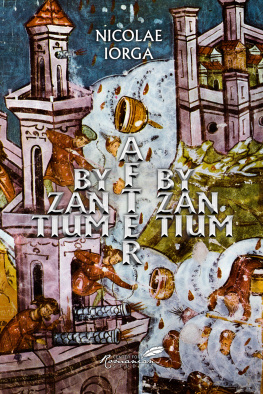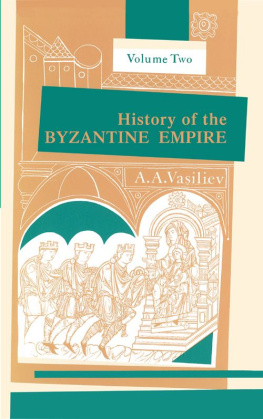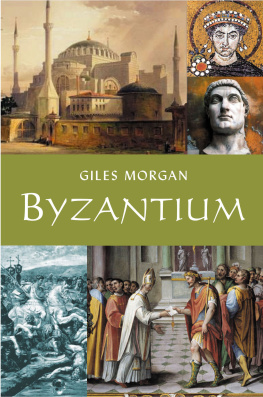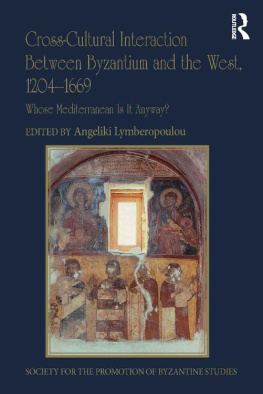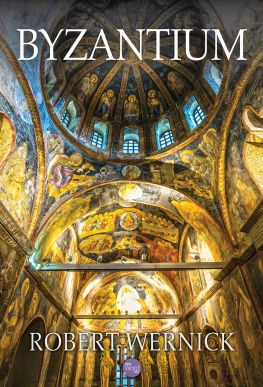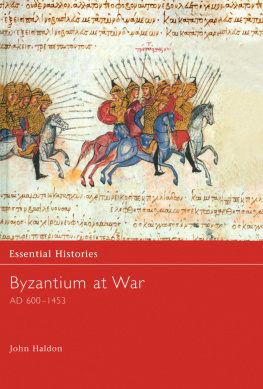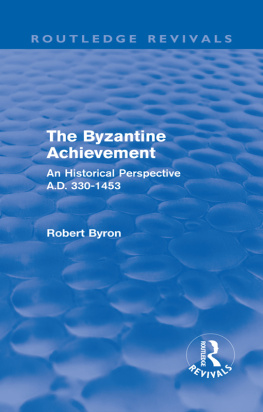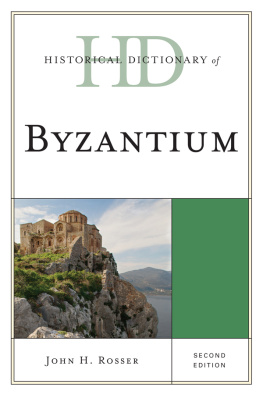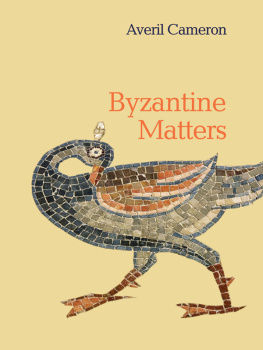Late Byzantium Reconsidered
Late Byzantium Reconsidered offers a unique collection of essays analysing the artistic achievements of Mediterranean centres linked to the Byzantine Empire between 1261, when the Palaiologan dynasty re-conquered Constantinople, and the decades after 1453, when the Ottomans took the city, marking the end of the Empire. These centuries were characterised by the rising of socio-political elites, in regions such as Crete, Italy, Laconia, Serbia, and Trebizond, that, while sharing cultural and artistic values influenced by the Byzantine Empire, were also developing innovative and original visual and cultural standards.
The comparative and interdisciplinary framework offered by this volume aims to challenge established ideas concerning the late Byzantine period such as decline, renewal, and innovation. By examining specific case studies of cultural production from within and outside Byzantium, the chapters in this volume highlight the intrinsic innovative nature of the socio-cultural identities active in the late medieval and early modern Mediterranean vis--vis the rhetorical assumption of the cultural contraction of the Byzantine Empire.
Andrea Mattiello holds a PhD from the Centre for Byzantine, Ottoman and Modern Greek Studies, University of Birmingham, UK. His research focuses on the art, architecture, and visual cultural production of the Palaiologan period. In particular, he has worked on cross-cultural interactions at the court of Mystras in relation to the agency of the Italian and Frankish wives of the Byzantine despots of Morea, and on late medieval and early modern image production in the context of the exchanges between Greek scholars and Italian humanists.
Maria Alessia Rossi completed her PhD at the Courtauld Institute of Art in 2017 and is currently the Samuel H. Kress Postdoctoral Researcher at the Index of Medieval Art at Princeton University, USA. Her main research interests include medieval art and architecture in the Byzantine and Slavic cultural spheres, artistic production and patronage in the Mediterranean, cross-cultural contacts and eclecticism in art between the Eastern and Western Christian world, the role of the miraculous, image theory, and gender theory.
First published 2019
by Routledge
2 Park Square, Milton Park, Abingdon, Oxon OX14 4RN
and by Routledge
52 Vanderbilt Avenue, New York, NY 10017
Routledge is an imprint of the Taylor & Francis Group, an informa business
2019 selection and editorial matter, Andrea Mattiello and Maria Alessia Rossi; individual chapters, the contributors
The right of Andrea Mattiello and Maria Alessia Rossi to be identified as the authors of the editorial material, and of the authors for their individual chapters, has been asserted in accordance with sections 77 and 78 of the Copyright, Designs and Patents Act 1988.
All rights reserved. No part of this book may be reprinted or reproduced or utilised in any form or by any electronic, mechanical, or other means, now known or hereafter invented, including photocopying and recording, or in any information storage or retrieval system, without permission in writing from the publishers.
Trademark notice: Product or corporate names may be trademarks or registered trademarks, and are used only for identification and explanation without intent to infringe.
British Library Cataloguing-in-Publication Data
A catalogue record for this book is available from the British Library
Library of Congress Cataloging-in-Publication Data
Names: Mattiello, Andrea, editor. | Rossi, Maria Alessia, editor.
Title: Late Byzantium reconsidered / [edited by] Andrea Mattiello, Maria Alessia Rossi.
Description: Abingdon, Oxon ; New York, NY : Routledge, 2019. | Includes bibliographical references and index.
Identifiers: LCCN 2018048185 | ISBN 9780815372868 (hardback : alk. paper) | ISBN 9781351244831 (ebook)
Subjects: LCSH: Arts and societyMediterranean RegionHistoryTo 1500. | Arts and societyByzantine Empire. | Byzantine EmpireCivilization1081-1453.
Classification: LCC NX180.S6 L38 2019 | DDC 700.1/0309495dc23
LC record available at https://lccn.loc.gov/2018048185
ISBN: 978-0-8153-7286-8 (hbk)
ISBN: 978-1-351-24483-1 (ebk)
Typeset in Times New Roman
by Apex CoVantage, LLC
This edited volume is the product of an international conference entitled Reconsidering the Concept of Decline and the Arts of the Palaiologan Era, that took place on 2425 February 2017 at the University of Birmingham in collaboration with the Courtauld Institute of Art. This event comprised both a symposium and a workshop. The symposium hosted a series of keynote lectures and papers presented by distinguished and early-career Byzantine art historians. The workshop was organised with the kind help of postgraduate students who gave short presentations on a selection of art-historical case studies, providing an opportunity for scholars and students to discuss the main topics of the symposium informally.
The aim of the conference was twofold: on one hand, it examined and contextualised the artistic and cultural production of geopolitical centres that were controlled by, or in contact with, the Late Byzantine Empire, in areas such as the Adriatic and Balkan regions, the major islands of Cyprus and Crete, and the regions surrounding the cities of Constantinople, Thessaloniki, and Mystras; on the other, it explored the many intellectual implications encoded in the innovative artistic production of the Palaiologan era often simplified by a rigid understanding of what is Byzantine and what is not.
Ultimately, the conference investigated cultural and artistic achievements that, once released by the Byzantine Empire during the last centuries of its existence, then migrated towards new frontiers of intellectual achievement. The aim of the conference and of its proceedings is to examine a selection of case studies counter-balancing the notion of decline and the narrative of decay frequently acknowledged for this period; and to encourage an understanding of transformation where the Byzantine cultural heritage was integrated into new socio-political orders or religious settings. Specifically, this volume promotes the view of the artistic production of the Palaiologan era as resourceful and innovative in light of the possibilities offered by the many interactions with a multitude of political and economic polities in an open and wide Mediterranean, which at the time was not perceived as either contracting or declining but rather as an opportunity for political and economic expansion. The establishment in the East of a strong Ottoman Empire during the fourteenth and fifteenth centuries was in part the reason for the end of the Byzantine Empire, but this was not recognised by contemporaries as a deterrent to artistic and cultural production. In contrast, the case studies gathered here showcase cultural exchanges and interactions between political and cultural actors belonging to both the Palaiologan and the neighbouring courts where similarities were acknowledged, and differences were encoded in new formulations.


